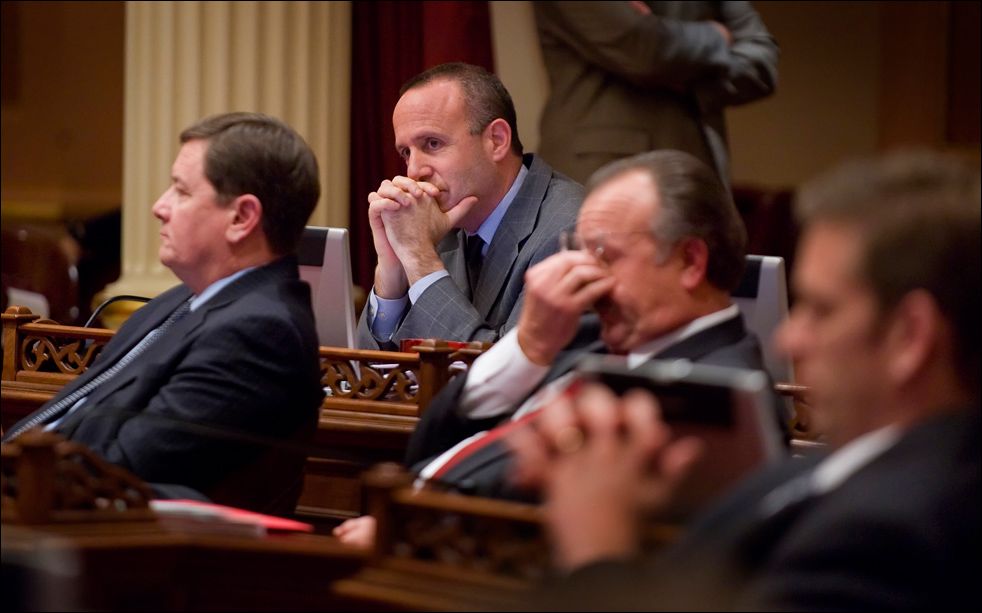Zero-sum thinking and California's budget

With California's budget in crisis mode, the solutions have been presented by lawmakers and the media in strictly zero-sum terms. You can think of a zero-sum game as a pie. If one piece of that pie gets bigger, another piece necessarily has to become smaller. In other words, you either cut spending (by cutting services and reducing the quality of life in California) or raise taxes (which comes with its own set of drawbacks). Democrats support raising taxes- mostly on corporations- while Republicans want to cut spending.
There is certainly something to be said for cutting wasteful spending out of the state's budget. For instance, the record numbers of non-violent offenders who are being held for life in California's prisons because of its Three Strikes Law, or the millions spent on the secure transportation of prisoners in comas and with other severe medical conditions that would prevent them from posing a threat if they were released on medical parole.
The California budget and economy, however, are not zero-sum games. They are complex, dynamic, chaotic systems and the application of some creative problem solving with a dynamic mindset could go a long way toward ending California's fiscal woes.
Here are just three examples of that kind of thinking at work:
CNN reports that: "California's legislature is exploring the feasibility of electronic license plates with digital ads, a move that its leading proponent says could add jobs and help in combating the state's budget crisis." That's a solution that doesn't cut spending and doesn't increase state revenues by taking value away from corporations. Instead, it increases state revenues by creating value for businesses.
Tapping into the state's resources, like the potential marketing value of its license plates, to create value for the private and public sectors is a very creative, non-zero-sum kind of solution. Here's another idea:
Last year, lawmakers in Minnesota proposed an interesting solution to that state's budget problems. They wanted to sell the Minneapolis-St. Paul International Airport- along with a some other state property and programs- to private businesses. The result would have been a six billion dollar revenue boost for the state without increasing taxes, but instead creating value by auctioning things that businesses want to buy.
One final example of dynamic, non-zero-sum thinking at work, is finding creative ways to decrease costs in public sectors without cutting back on the quality of services that Californians receive. An example would be a state-wide, private voucher program for education. When the District of Columbia tried this, they managed to cut costs by 75% while actually improving the quality of education the students in the program recieved.
Agree with any of the three proposals above or not, hopefully they have served to illustrate that there are other, non-zero-sum kinds of solutions out there. The pie can grow and change. There is not a fixed, finite amount of value out there simply to be allocated as either private or public.
Try to think of your own dynamic solutions, especially if you disagree with the ones listed in this article. And please share and discuss them in the comments.
CAIVN wants to incubate conversation, ideas, and creative problem-solving for challenges like California's budget deficit.




